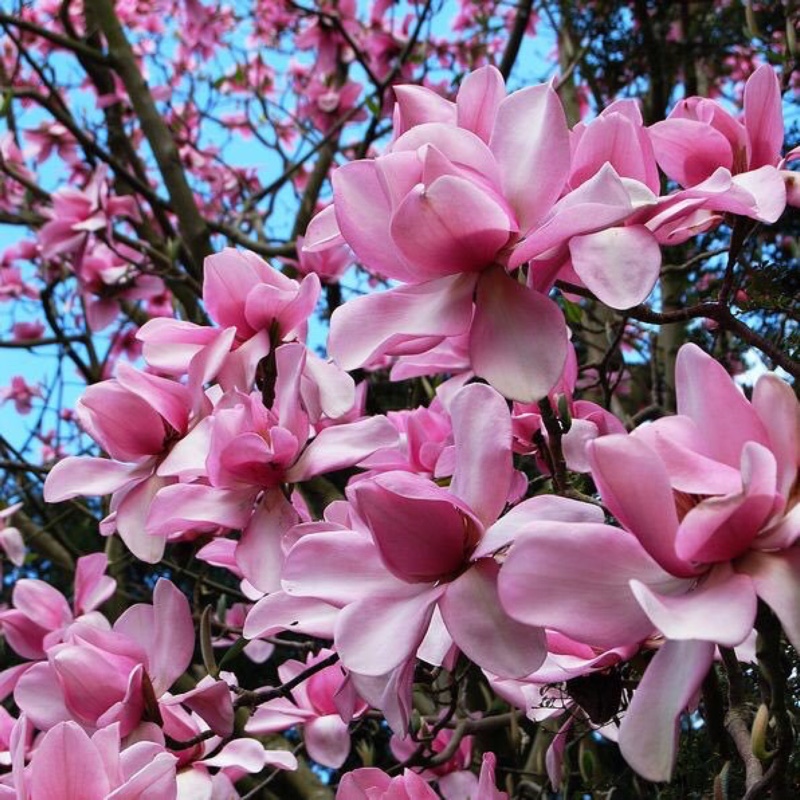
Magnolia campbellii
Campbell's Magnolia
Magnolia campbellii is grown as an ornamental tree for its breathtaking flowers, though successful flowering is limited to mild areas with no late spring frosts. This variety flowers slightly later and is less likely to have its flowers frost-damaged. Young trees take a long time to reach flowering age and need deep, moist soil and a mild, sheltered site.
Contributed by @hazzer101
-
Full sun
-
Occasional watering
-
Full Frost Hardy: 5F (-15°C)
-
Moist and fertile
Common name
Campbell's Magnolia
Latin name
Magnolia campbellii
type
Flowering shrubs or trees
family
Magnoliaceae
ph
5.5 - 7.0 Acid - Neutral
Plant & bloom calendar
-
Best time to plant
full grown dimensions
 10.00 M
15.00 M
10.00 M
15.00 M
Magnolia campbellii
Magnolia campbellii is grown as an ornamental tree for its breathtaking flowers, though successful flowering is limited to mild areas with no late spring frosts. This variety flowers slightly later and is less likely to have its flowers frost-damaged. Young trees take a long time to reach flowering age and need deep, moist soil and a mild, sheltered site.
Planting Outdoors
From Mid Autumn TO Mid Spring
Before planting out dig in plenty of well rotted manure or compost into a hole that is 2 or 3 times the width of the pot but not deeper. They should be planted, spreading the roots out, so that the top roots are near the surface. Mulch over the top.
Propagation by cuttings
From Mid Spring TO Early Summer
Take soft wood cuttings in spring to early summer. Cleanly cut up to a 10cm long stems, remove lower leaves and pinch the tip out, dip the stem into rooting hormone, fill a container/pot with suitable compost, make holes around the edge of it and plant the cuttings, water in well, cover with a polythene bag and place somewhere warm, lake the bag off twice a week to air the cuttings. Keep the cuttings moist until well rooted. Harden off when well rooted and pot on into individual pots increasing the airing to let the leaves to develop. Remove rotten, dying or dead cuttings regularly.
Propagation by cuttings
From Mid Spring TO Early Summer
Take soft wood cuttings in spring to early summer. Cleanly cut up to a 10cm long stems, remove lower leaves and pinch the tip out, dip the stem into rooting hormone, fill a container/pot with suitable compost, make holes around the edge of it and plant the cuttings, water in well, cover with a polythene bag and place somewhere warm, lake the bag off twice a week to air the cuttings. Keep the cuttings moist until well rooted. Harden off when well rooted and pot on into individual pots increasing the airing to let the leaves to develop. Remove rotten, dying or dead cuttings regularly.
Propagation by cuttings
From Mid Summer TO Early Autumn
Semi hard wood cuttings are taken from the current years growth from late summer to mid autumn the bottom of the cuttings is hard and soft on the top. With a sharp knife take a cutting of about 14cms, remove lowest leaves, dip end into rooting hormone, and place round the edge of a pot filled with a suitable compost, water well, they must remain moist till rooted, place under glass but in semi shade.















